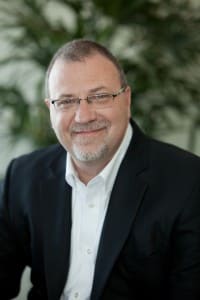

Hume’s dictum has been restated many ways since, notably in Carl Sagan’s frequent saying that “extraordinary claims require extraordinary evidence.” In my last article in NPM I wrote about science and non-science, and the importance of the concept of falsifiability in science. Falsifiability (the attempt to prove a hypothesis wrong) is grounded in a skeptical attitude. I believe that a skeptical approach is useful outside of science as well, and should be one of the habits of mind of any seeker after truth.
It’s important to draw a distinction between skepticism and cynicism, two ideas that are often confused. Cynicism, at least in its modern usage, is “an attitude of scornful or jaded negativity, especially a general distrust of the integrity or professed motives of others” (http://www.thefreedictionary.com/cynicism). Skepticism, however, is “a methodology based on an assumption of doubt with the aim of acquiring approximate or relative certainty” (http://www.thefreedictionary.com/skepticism). Cynicism implies an unwillingness to believe something; skepticism implies open-minded doubt but a willingness to believe the evidence.
The Enneagram is a system with many interpretations and applications. Some of those interpretations and applications are based on experience and evidence; others are highly theoretical, the result of thought experiments rather than empirical observations. It is often difficult to tell the difference because people presenting the ideas may not be completely candid about how they derived their ideas. How are we to know which ideas and applications are accurate? It’s best to start with a skeptical attitude.
Whenever I teach the Enneagram, I begin by urging the group to test and challenge anything I say that doesn’t seem to fit their experience. I think this questioning is a good practice for all of us—if someone tells us “All Ones do this and all Twos do that,” we should question it and see if Ones really do do this and Twos really do do that.
We should also question assertions people make about the history of the Enneagram. When I first learned about the Enneagram, I was told that the system had “Sufi roots.” Intrigued, I started reading about the Sufis and Sufi authors but, I’m embarrassed to say, it took me quite a few years to realize that I didn’t encounter the Enneagram in the Sufi literature no matter what Sufis I read. I stated looking for signs of the Enneagram in books about Sufi art, Islamic design, and sacred geometry and it was nowhere to be found. I started doubting this story, especially after reading Oscar Ichazo’s “Letter to the Transpersonal Community” (available online at www.arica.org) in which he clearly says that he did not get his ideas about the Enneagram from the Sufis or from Gurdjieff. Finally, I discovered a video in which Claudio Naranjo says he made up the Sufi connection whole cloth in an attempt at self-promotion.1
It is all too easy unquestioningly embrace assertions of authorities rather than look at the evidence for ourselves. This is only natural—few of us have the time to test every claim and we rely on authorities to give us good guidance and accurate information. Unfortunately, we live in a time of the “instant expert” who, enabled by technology, can spread misconceptions at speeds unimagined in the past. Sometimes authorities mislead others for their own purposes, other times they are simply mistaken, other times they are mislead by other experts. It can be difficult to know when we should trust someone and when we shouldn’t. Thus, it is more important than ever before to practice skepticism.
Hume is sometimes referred to as advocating “radical skepticism”, the idea that we can’t trust anything. In a way, this is true, but he also acknowledged that we can’t live in a state of radical skepticism—it would be paralyzing if we couldn’t live with reasonable confidence that the sun will rise tomorrow or that we will not float upward when we rise in the morning. We must find a balance between skepticism and trust if we are going to live normal lives
So how can we become skeptical without being paralyzed by doubt?
- The first step is to consciously embrace skepticism as a habit of mind and realize that being skeptical does not mean we have to become pessimistic or cynical.
- Second, we should accept that even the most esteemed authorities are fallible and we should never accept any assertion merely because some authority makes it.
- We should ask ourselves how incredible or extraordinary a claim seems and if the evidence offered is in proportion to the claim being made. For example, claiming that I saw strange lights in the sky that I couldn’t identify is not a particularly extraordinary claim and you would be reasonable to accept my claim. We are in different territory, however, if I claim that those lights were an alien spaceship. This is an extraordinary claim and you would be justified in asking for a lot of proof before believing me. Ask, “How do I know this to be true? What evidence supports this claim? What evidence contradicts this claim?” The more important the claim and the higher the impications of accepting the claim, the more we should seek evidence to the contrary.
- Question, but be open-minded, about any claim that goes against our experience. For example, I recently over heard a conversation among two Enneagrammers—a man relatively new to the model and a woman with a bit more experience. The man asserted people of people of her type (and therefore, she) had a tendency toward a certain behavior. When she replied, “but I don’t do that,” he responded with, essentially, “you must; that is what I learned in a book.” She was right to challenge him; he missed an opportunity to learn by ignoring her experience and relying on an authority instead. This is not to say that we always see ourselves clearly—there have been many times when people have told me I have qualities that I didn’t see in myself, only to find later that they were correct and my self-perception was inaccurate. As I said, we must question and be open-minded, even about our own authority.
It is easy to forget that exposing untruths is just as important as accumulating truths in the pursuit of wisdom. Skepticism reminds us that we see more clearly when we remove the filter of credulity and learn to question as well as embrace.
But don’t take my word for it; test it for yourself…
Mario Sikora is an executive coach and consultant who advises leaders in large multinational organizations and conducts Enneagram-based certification programs and workshops across the globe. He is the co-author of Awareness to Action: The Enneagram, Emotional Intelligence, and Change and past president of the Board of Directors of the IEA. He continues to serve on the board of directors and overseas international affairs for the IEA. He can be reached via his website: www.awarenesstoaction.com.
1”The Origin of the Enneagram—Claudio Naranjo Speaks—June 2010,” a video available online at http://www.youtube.com/watch?v=wlO3KJWnNd8.

